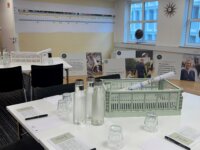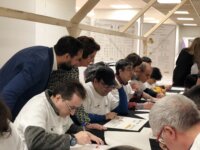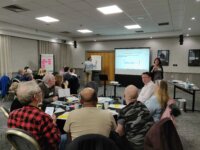This project aimed to translate new legislation on occupational injuries into a citizen-oriented service journey, helping those injured at work to re-enter the workforce through education. Through co-creation, we designed the future customer journey, designing a unified service that involved various stakeholders.
Innovation Tag Opengov: social policy
The Conectando Saberes ('Connecting Knowledge') Academy of the Specialised Protection Service for Children and Adolescents presents a novel way of training people who intervene directly in the protection of the rights of children and adolescents using a digital platform. The design was co-creative, taking into account the vision and experience of those who are in direct contact with children and their families.
"Being new in Norway", is a prioritized life event in the Norwegian government`s digitization strategy aiming to:
Provide a holistic and comprehensive public info to the newcomers as end-users
Accelerate newcomers’ participation in work and society
Increase public resources efficiency
The website nyinorge.no/en is addressing those goals and is a hub for accessing public information to newcomers
We used foresight methodology to contribute to more long-term and sustainable service delivery.
The DYPA Career Days, organized by the Public Employment Service (DYPA) in Greece, fosters direct engagement between the business sector and jobseekers. This marks a significant departure for DYPA as these events are now systematically conducted, spanning the entire country. A key strength of DYPA’s Career Days lies in their comprehensive promotion of employment opportunities and the strategic engagement of interested individuals through a process characterized by simultaneous, adaptable, and…
PAZOS is an innovative alternative to dealing with the historically high juvenile homicide rate by using public force. It was developed because the city of Palmira was among the most dangerous cities in Colombia and the world; today we have the lowest homicide rate in the city's history. We attribute this achievement to an articulated and focused intervention, oriented to the dual functionality of targeting public spending and generating opportunities through policymaking.
Easy Government invites people with disabilities to redesign legal and administrative texts (i.e., laws, subsidy formulares) using an easy-to-read approach based on pictograms, simple words, short paragraphs, and the creation of new products that are simpler and clearer for all audiences (i.e., seniors, immigrants, people with low reading comprehension, children). With the lenses focused on diversity and inclusion we seek to address complex issues faced by these population groups.
Case Study
Aides Jeunes – Social aid and benefits simulator for individuals and those who accompany them.
Aides Jeunes, the aid simulator on the 1jeune1solution.gouv.fr website, was developed to combat the lack of access to rights in France. In just a few minutes, it allows people to see what aid they are entitled to, and to facilitate their aid application process. To date, it contains more than 700 forms of assistance and allows 80,000 people to be directed each month.
Scottish Government commissioned research to explore public attitudes to agriculture, environment and rural priorities in Scotland, to develop replacements to the Common Agricultural Policy. The research involved a number of strands of data collection, with each element building on the other, and culminating in citizens' forums to develop a detailed understanding of public priorities. The research is being used by policymakers as a new Scottish Bill is in the process of being developed.
Case Study
Construction of an experimental and co-creation research methodology for co-operative governance in…
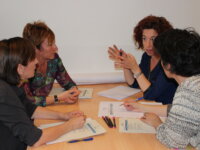
The prolonged economic crisis in Europe has led to a growing feeling of alienation among citizens from the main decision-making centres. The co-creation research methodology for co-operative governance is an innovative approach to stakeholder engagement in which policymakers and researchers work as a team in dialogue spaces configured to address different territorial challenges. A participative, open and collaborative governance for the economic development of Gipuzkoa is therefore being built.
Case Study
Unlocking the potential of crowdsourcing for public decision-making with artificial intelligence
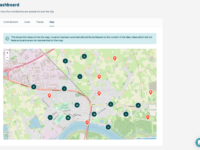
In citizen participation projects, analysing contributions is often a huge challenge for administrations.
CitizenLab has developed machine-learning algorithms in order to help civil servants easily process thousands of citizen contributions and efficiently use these insights in decision-making.
The dashboards on our platform classify ideas, show what topics are emerging, summarise trends and cluster similar contributions by theme, demographic trait or location.

